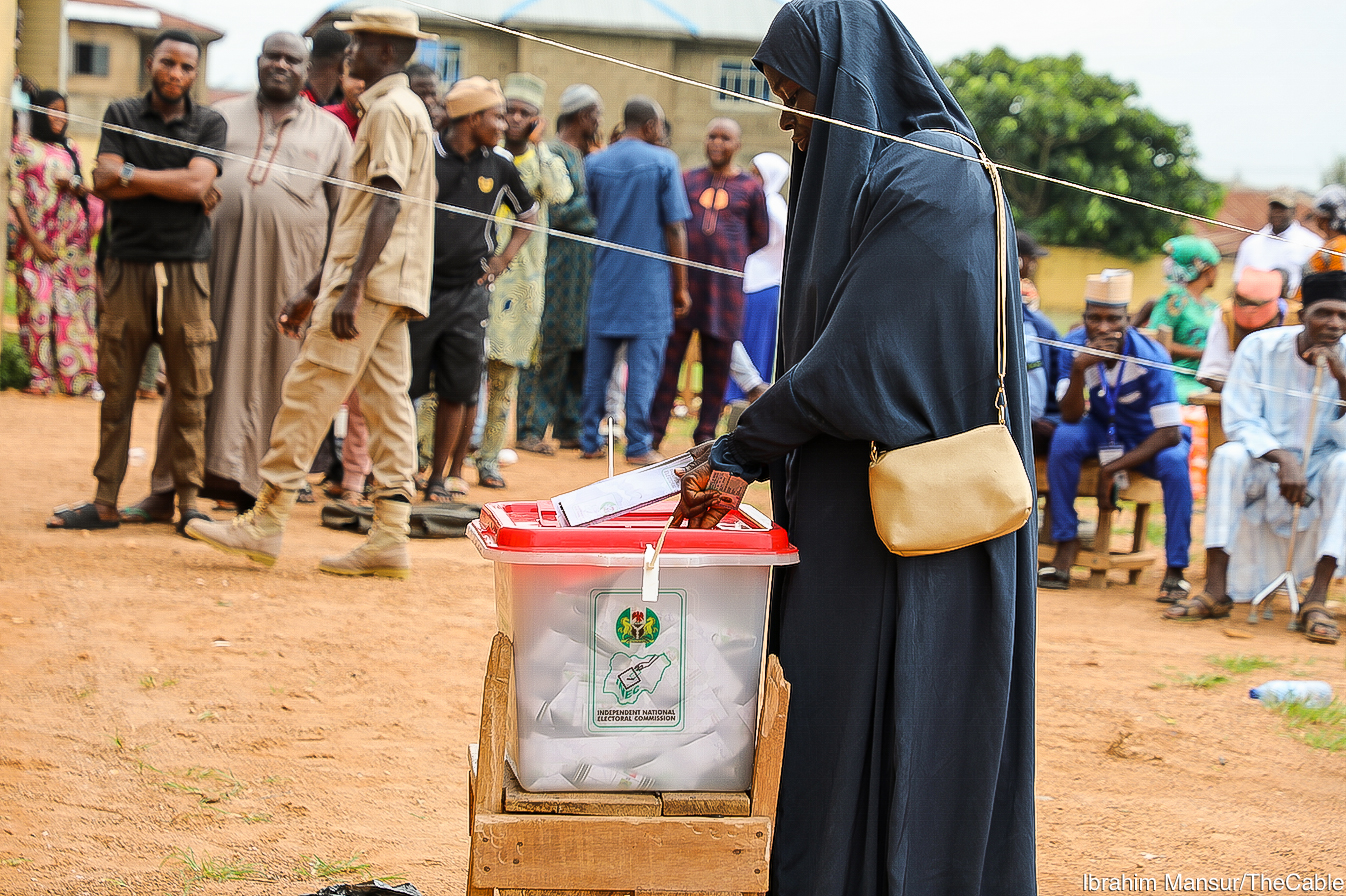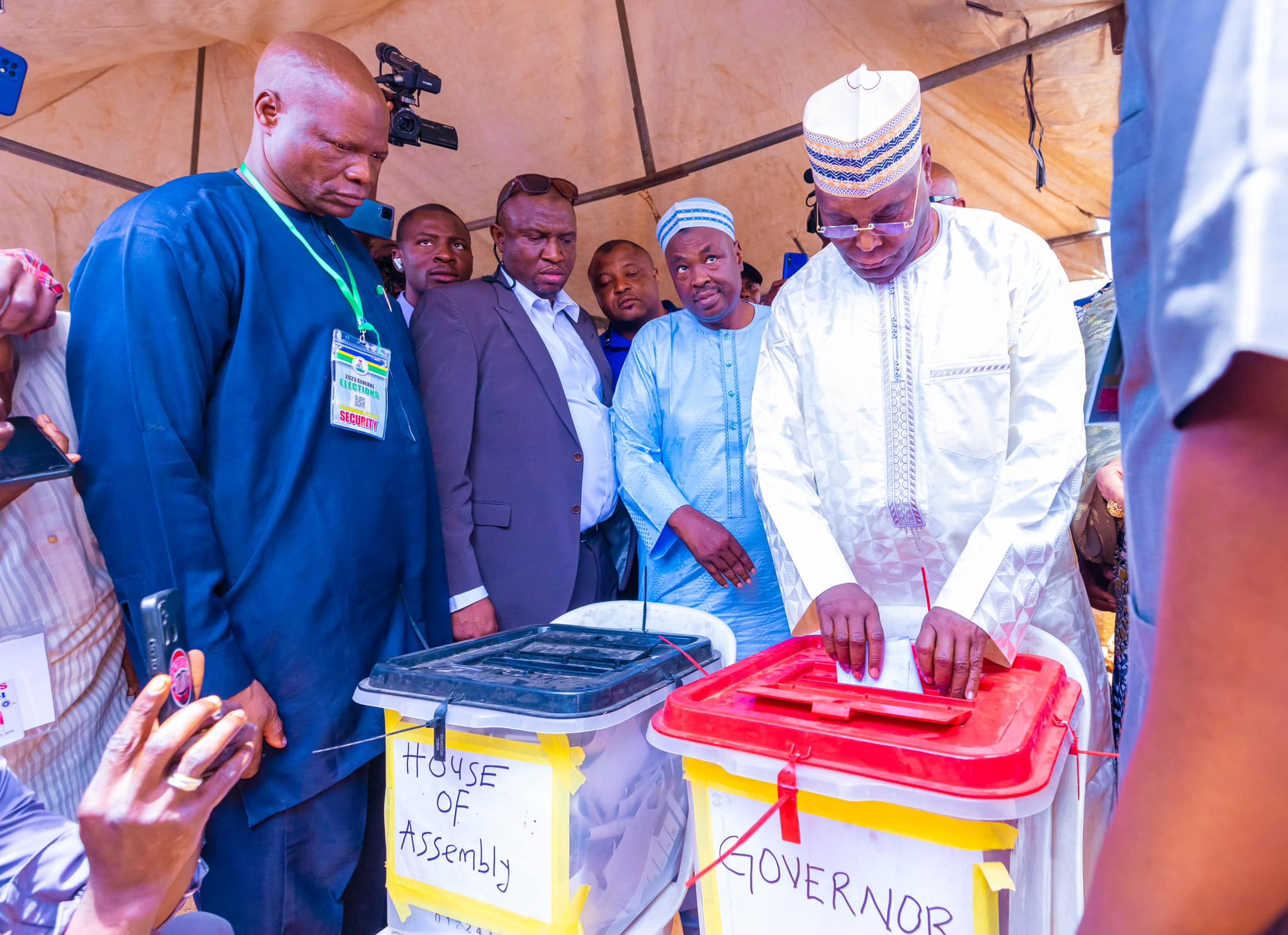The Independent National Electoral Commission (INEC) says Atiku Abubakar, candidate of the Peoples Democratic Party (PDP), did not meet the constitutional requirement to be declared winner of the February 25 presidential election.
Bola Tinubu, the standard bearer of the All Progressives Congress (APC), was declared the winner of the presidential poll with 8,794,726 votes.
Atiku polled 6,984,520, votes and Peter Obi of the Labour Party (LP) came third with 6,101,533.
Challenging Tinubu’s victory in the petition marked CA/PEPC/05/2023, Atiku and the PDP claimed that Tinubu was not qualified to contest the election.
Advertisement
“The 2nd respondent (Tinubu) was not duly elected by the majority of lawful votes cast at the election,” the petition reads.
“The 2nd respondent was at the time of the election not qualified to contest the election.”
The PDP candidate wants the tribunal to nullify Tinubu’s victory and withdraw the certificate of return issued to him.
Advertisement
In a preliminary objection filed on Tuesday, INEC urged the tribunal to dismiss the petition by Atiku and his party.
“The first petitioner (Atiku), failed to score, at least, one-quarter of the votes cast in at least two-thirds of the 36 states of the federation and the federal capital territory (FCT) and as such could not have been declared the winner,” INEC said
“The election was conducted in substantial compliance with the Electoral Act 2022 and was not marred by any corrupt practices.”
25% VOTES IN FCT ‘UNNECESSARY’
Advertisement
INEC submitted that the APC candidate met all the legal requirements to be so announced as the winner of the election, adding that a candidate must not secure 25 per cent votes in the FCT to be declared winner because the FCT was not accorded any special status in the constitution as being “erroneously” portrayed by some political parties and candidates who lost the election.
“Having scored at least one-quarter of the valid votes cast in 29 states, which is over and above the 2/3 states threshold required by the constitution, in addition to scoring the majority of the lawful votes cast at the election, the second respondent was properly declared the winner and returned as the president-elect of the federal republic of Nigeria,” the commission stated.
“The second respondent, having scored 25 per cent of the valid votes cast in the 29 states, has satisfied the requirement of the constitution to be declared winner of the presidential election, thus rendering the requirement of having 25 per cent of the valid votes cast in the FCT unnecessary.
“The declaration and return of the second respondent were not wrongful and was made in accordance with the provisions of Section 134 (2) (b) of the Constitution, the second respondent having scored one quarter (25 per cent) of the valid votes cast in 29 states which are beyond the constitutional threshold for such declaration.
Advertisement
INEC submitted that scoring 25 per cent of the votes cast in the federal capital territory is not a “condition precedent to the declaration and return of a candidate in the presidential election.”
“The provisions of the constitution apply to FCT as if it were one of the states of the federation and the use of the word ‘and’ in Section 134 (2) of the constitution indicates nothing more than that in construing two-thirds of the states of the federation in which a candidate is required to score one-quarter of the votes cast.
Advertisement
INEC said FCT “has the status of a state and ought to be recognised as if were a state of the federation”.
“The FCT is regarded as the 37th state of the federation and as such, a candidate needs to score 25 per cent of the valid votes cast in at least two-thirds of 37 states (to be declared as winner in the presidential election.”
Advertisement
Add a comment





